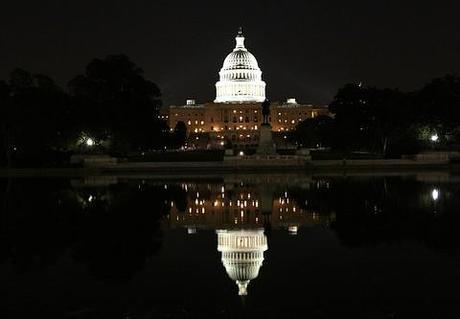
Washington. Photo credit: Ed Schipul
It sounds like the plot of a Hollywood film: the US has accused Iran of plotting to assassinate the Saudi ambassador by hiring a Mexican drug cartel to bomb his favorite Washington restaurant. Two men have been charged after apparently negotiating with a cartel representative – who turned out to be an informant for the US drug enforcement agency (DEA). The US stance is that the attack was orchestrated by the Quds Force, a special branch of the Iranian Revolutionary Guard, rather than a rogue plot.
“The idea that they would attempt to go to a Mexican drug cartel to solicit murder-for-hire to kill the Saudi ambassador? Nobody could make that up, right?” US Secretary of State Hillary Clinton said to the Associated Press.
Strange plot. Writing for Gawker, John Cook pointed out that there are “many, many strange things about this story.” So far, the US has charged two men in connection with the alleged plot: Manssor Arbabsiar, an Iranian-American businessman currently under arrest, and Gholam Shakuri, an Iranian intelligence agent who remains in Iran. Cook flagged up the decision to charge Shakuri as odd: “They’ve already got the only guy they’re going to get, and he’s cooperating and providing a presumably invaluable intelligence service—so why blow it up?”
“Iran categorically and in the strongest terms condemns this shameful allegation by the United States authorities and deplores it as a well-thought evil plot in line with their anti-Iranian policy”, said Mohammad Khazaee, Iranian ambassador to the US, in a letter to the United Nations.
Unlikely method. At The New York Times, Neil MacFarquhar reported that Iran experts “found it baffling and uncharacteristic that the Quds Force would risk linking itself so publicly to plotting a terrorist attack on American soil”, particularly as this may jeopardise Iran’s nuclear programme.
Attack on allies. PJ Crowley questioned on The Guardian’s Comment Is Free how much Iran would gain from a plot to assassinate the Saudi Ambassador to the US, Adel al-Jubeir. “Perhaps the Iranians were thinking that additional sand in the gears of the US-Saudi friendship can’t hurt”, he suggested.
Outreach. Eli Lake wrote on The Daily Beast that while President Obama had attempted to “reach out” to Iran’s leaders during the first year of his presidency, “behind the scenes however, the United States was also doubling down with its Middle Eastern allies against Iran, particularly Saudi Arabia and Israel.” However, such behind-the-scenes negotiating isn’t enough to pacify The New York Daily News‘s Michael Rubin, who argued that Obama should now cease all attempts at dialogue: “Obama may hold an olive branch, but the White House must recognize the Iranian regime’s fist holds only blood,” he said.
Victory for hardliners in Iran. Jamsheed Choksy and Carol Choksy argued that on CNN that the plot was a victory for hardliners in the Iranian government who are against the possibility of “normalisation” of relations with the US: “Those in Tehran who plotted these attacks intended to sunder that goodwill between peoples and to further alienate their own citizens from the rest of the world.”

